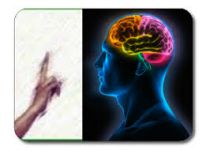 Eye Movement Desensitization and Reprocessing (EMDR)
Eye Movement Desensitization and Reprocessing (EMDR)
|
Providers: |
|
Eye Movement Desensitization and Reprocessing (EMDR) is a psychotherapeutic technique which enables people to heal from symptoms and emotional distress that result from distressing/disturbing life experiences. EMDR demonstrates that the mind can heal from psychological trauma similar to the way the body heals from physical trauma. Imagine if you cut your hand, your body works to close the wound. If there is a foreign object or repeated injury to the wound, it festers and causes you pain. Once the block is removed, healing can continue. EMDR demonstrates a similar sequence of events occurs with mental processes. The brain possesses an innate information processing system to naturally process experiences in a healthy and adaptive manner. If this processing system is blocked or out of balance due to the impact of a disturbing event, the emotional wound festers and causes pain. Once the block is removed, healing can resume.
Much research has been conducted on EMDR and it is now considered an effective treatment intervention for trauma and other disturbing experiences individuals may experience. Organizations recognizing EMDR as an effective form of psychological treatment include, but are not limited to, American Psychiatric Association, the World Health Organization, and the Department of Defense. It is believed that the biological mechanisms present in Rapid Eye Movement (REM) sleep are involved during EMDR, which lead to internal associations to arise and allow the client to begin processing the memory and associated distressing emotions.
EMDR is effective in the treatment of “everyday” memories that can impact a person’s sense of self-worth, feelings of powerlessness, and various others issues which might bring someone to seek therapy. The meaning of painful events is transformed on an emotional level and the insights gained come from the client’s own accelerated intellectual and emotional processing, rather than from the clinician’s interpretations. Clients are able to feel empowered at the conclusion of EMDR treatment by experiences that previously debased them. The previously existing emotional wounds have not only healed, but have transformed allowing clients to have a different relationship/perspective regarding the past experiences.
To learn more about EMDR, please visit EMDR Institute, Inc. at www.emdr.com
